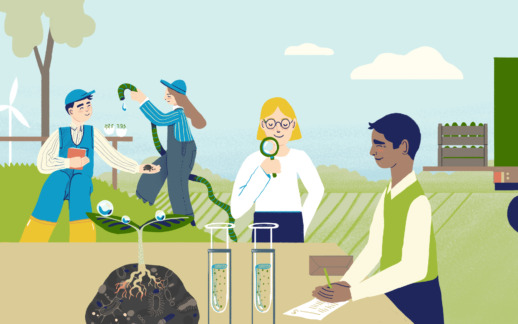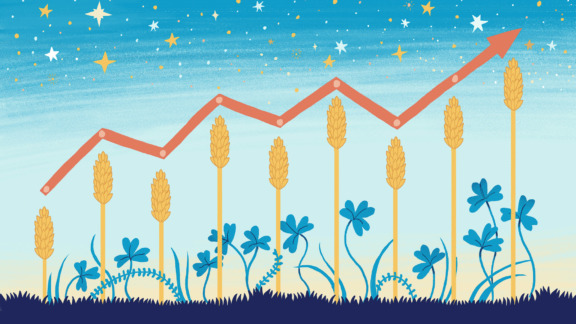Fazer renews its Baltic Sea commitment
Fazer has renewed its five-year commitment to the Baltic Sea Action Group. The new commitment focuses on four areas: circular economy, sustainable grain farming, water stewardship plan, and development of their range of products. The goal is to improve production, operating methods and selection to help promote the ecological balance of the Baltic Sea. The commitment has several milestones which help to keep track of its progress.
Fazer aims to support circular economy through safe recycling of nutrients, reducing the amounts of waste, and improving resource efficiency. Each business area has set targets for reducing the amount of waste.
Sustainable grain farming is developed further in collaboration with Fazer’s value chain. Fazer’s goal is for all of their grain in Finland and Sweden to comply with the principles of sustainable farming by 2025.
Fazer will prepare a water stewardship plan that specifies their goals and the corresponding measures related to water consumption, waste water and reduction of water use in the value chain.
In addition to the aforementioned goals, Fazer will also develop their range of products. They will emphasize domestic raw materials, favour seasonal produce, increase the amount of plant-based foods, promote the use of sustainable sources of protein, and reduce the amount of food waste.
“We can make a difference in the various phases of food production so that smaller amounts of valuable nutrients make their way into the water. For example, our Sustainable Grain Farming Principles contain concrete actions to keep nutrients out of water systems by keeping them in the fields where they can be used by crops. Our Baltic Sea commitment brings all these measures together,” states President and CEO of Fazer Group, Christoph Vitzthum.
“As a major player in the industry, Fazer’s actions also set an example for others to follow. This is important, because food production has enormous potential to affect both the Baltic Sea and the climate. We are very pleased that Fazer is committed to making food production more sustainable through long-term cooperation,” says BSAG founding member Ilkka Herlin.
Fazer made their first commitment to BSAG in 2013. As a result, Fazer succeeded in reducing energy consumption by 14 % per tonne of product, and the proportion of overall electricity generated from renewable sources increased to 88 %. In Finland, Sweden and Latvia, the share of renewable electricity is 100 %. Fazer produced its sustainable grain farming principles in 2017. Fazer Mills adopted a new responsibility programme, and Fazer Food Services began to encourage its restaurants to increase their use of vegetables.
Fazer’s previous commitment was a success and generated good results, which encourages them to continue on the same path with their new commitment. Food production and consumption have a major impact on the environment, as well as on society and general well-being. This is why food also offers the possibility of creating effective solutions.



